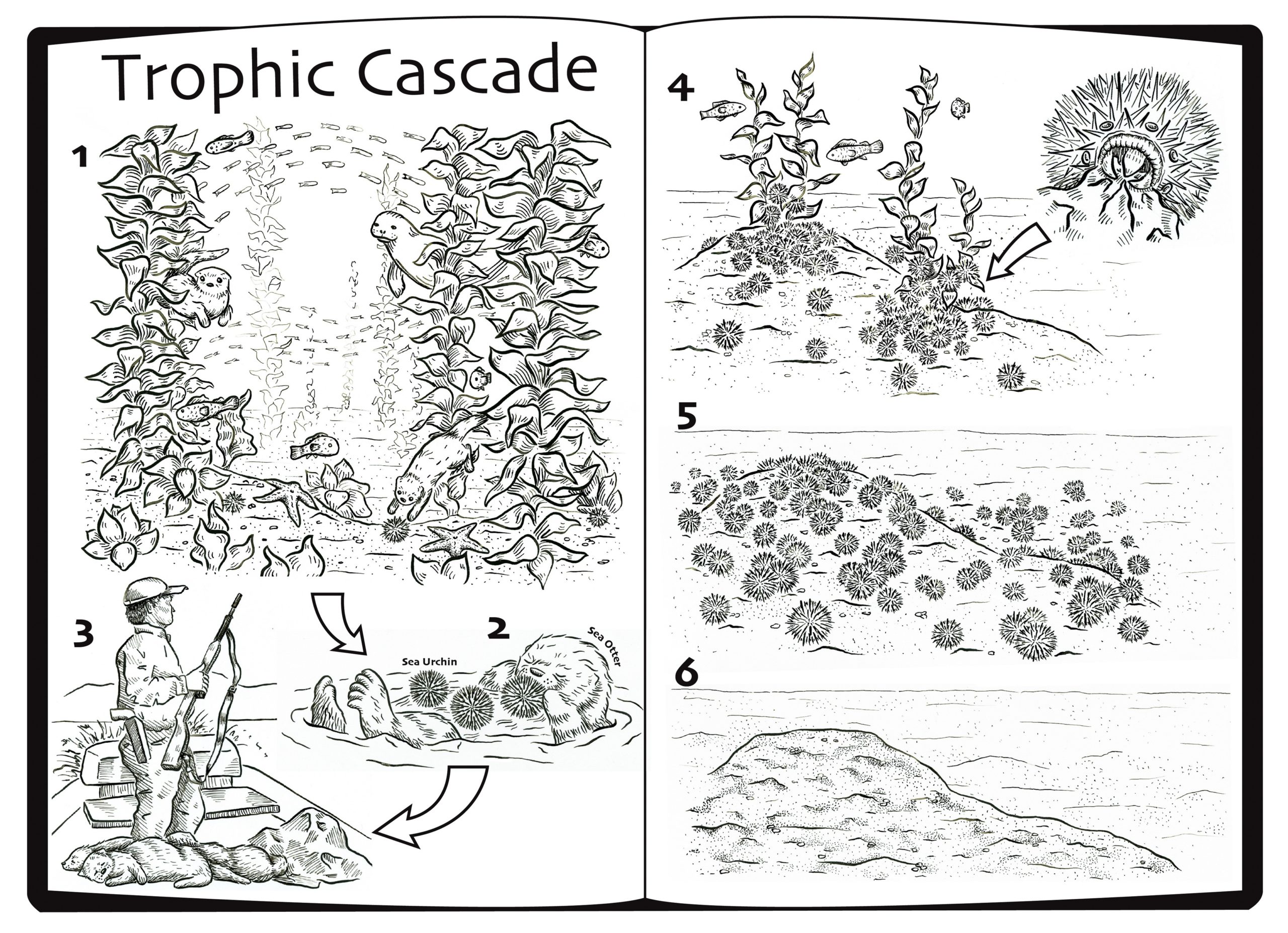2019 Honorable Mention – Jenna John

Trophic Cascade
My work “Trophic Cascade” seeks to promote awareness of understanding how seemingly small disturbances can dramatically change and even destroy an ecosystem. In biology classes, trophic cascades are typically taught through textbooks, lectures, and occasionally a pyramid showing relationships between species, but for this work I wanted to create a more comprehensive and engaging visual explanation of the concept of trophic cascades.
While learning about trophic cascades can be boring, I wanted to use this project to tell a story of the relationship of sea otters and sea urchins in kelp forests without the use of words to make it more interesting. I still imagine this work in the context of a textbook, but since it relies purely on visual elements it brings something new to the typical lengthy and dry readings most biology students have to complete. In making this work I created a sequence of images to depict the consequences that result in interference with delicate ecosystems. In my work, the sea otters are the top predator of the ecosystem and are the only predator that can consume sea urchins. While sea otters are small, few, and not immediately assumed to be top predators in a kelp forest, the removal of sea otters from the ecosystem via poaching unleashes a chain of events that can result in the destruction of the entire kelp forest. Without sea otters there to regulate the population of sea urchins, the sea urchin’s population grows exponentially and they consume the kelp forest until nothing is left. While the sea urchins only consume kelp and other plants, their unregulated dominance of the ecosystem impedes on the survival of all other species that rely on the kelp forests for shelter, food and protection.
While I chose to focus on this particular example in kelp forests, the same story applies to many different ecosystems and these concepts are incredibly important to understand with regards to species diversity and conservation. More often than not, ecosystems are thrown out of balance as a result of human influence. Promoting knowledge of ecological concepts, such as trophic cascades, in easy to understand accessible ways is a necessary step in mitigating the harm we have already done and also preventing such catastrophes from happening again.
